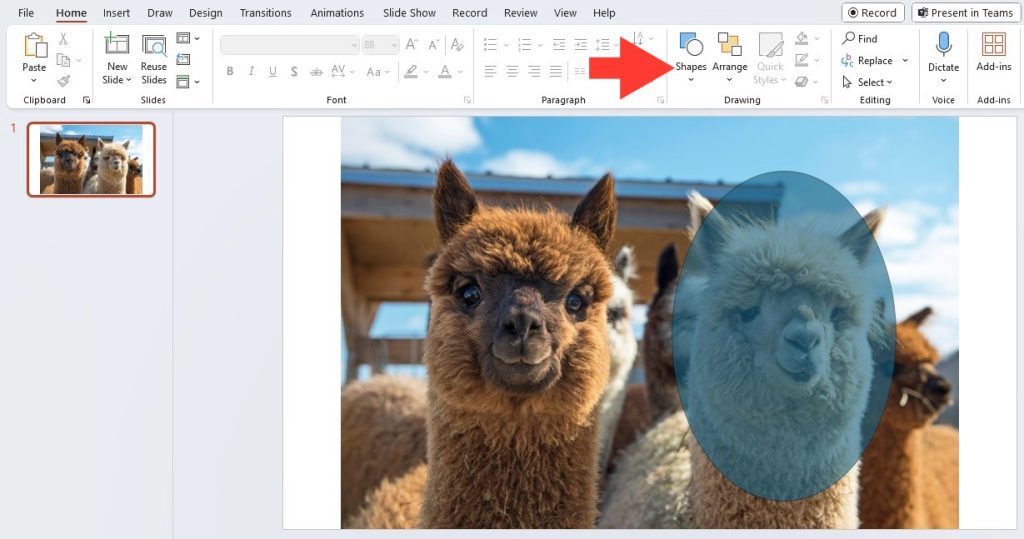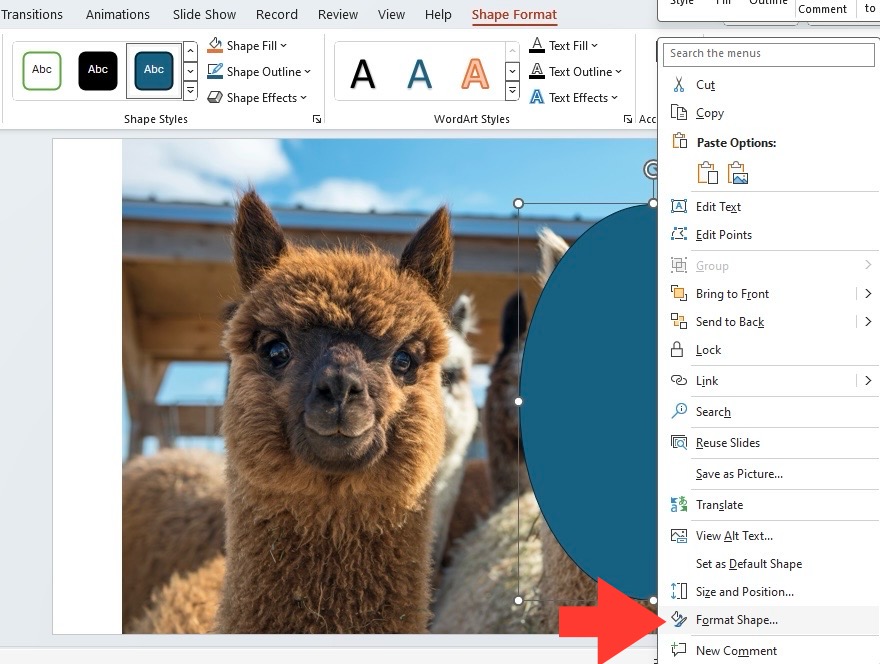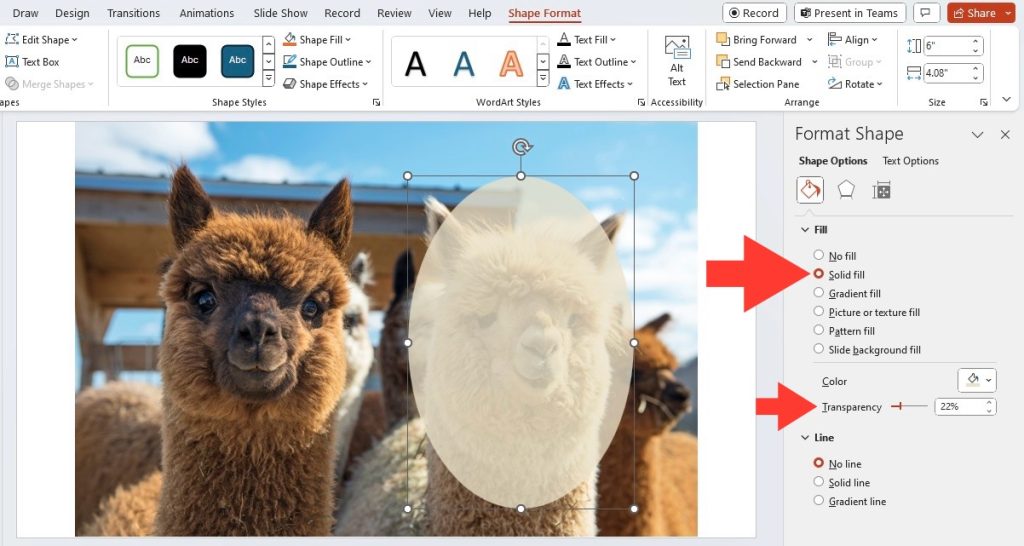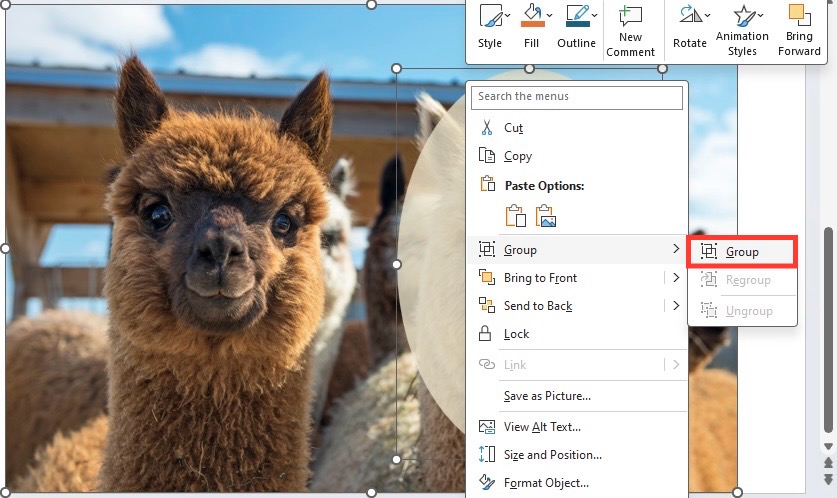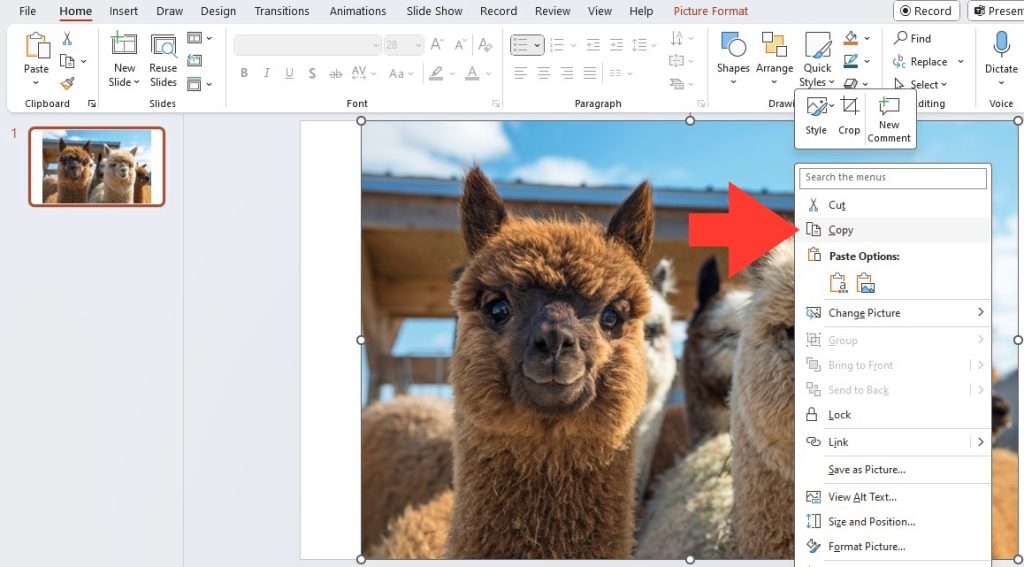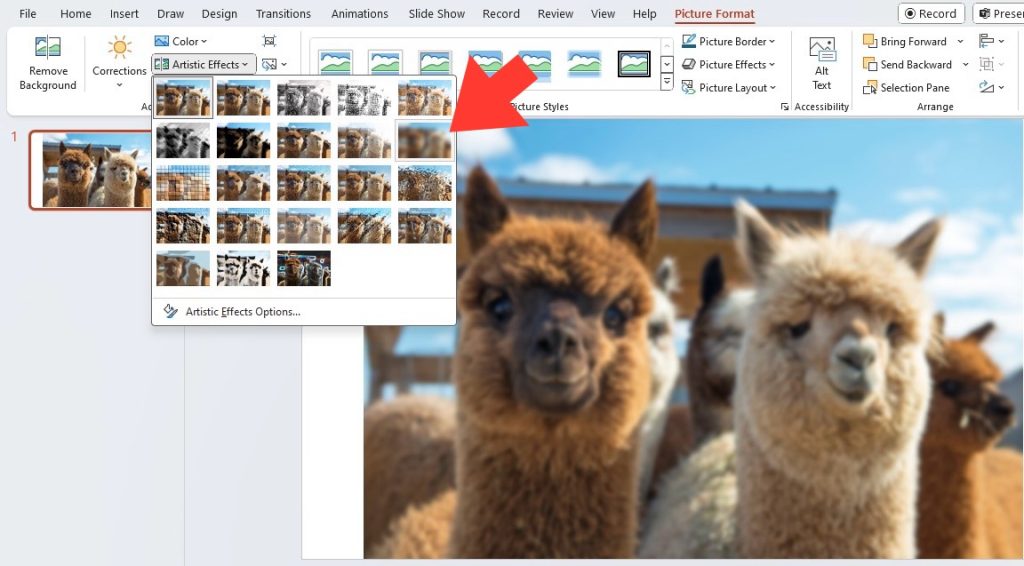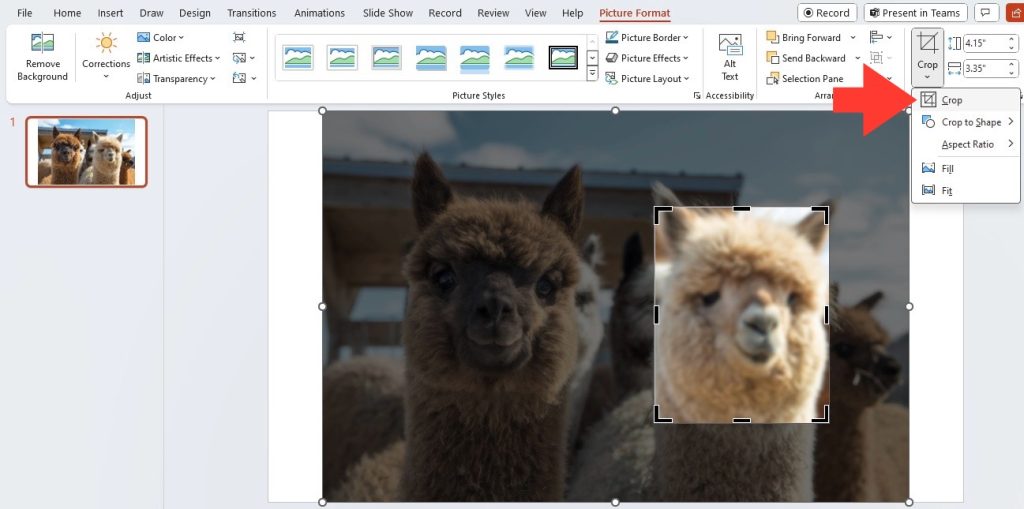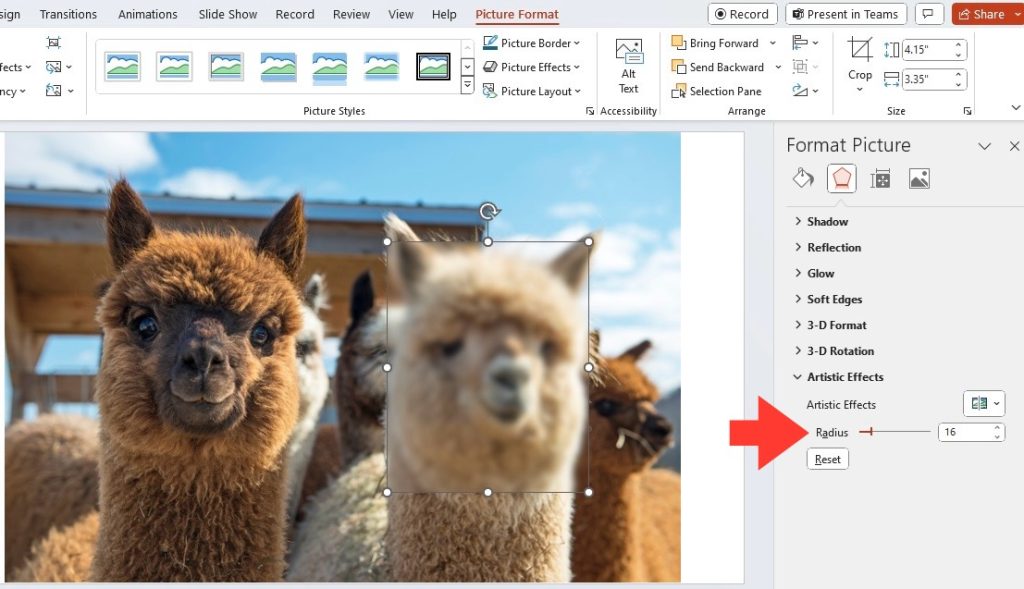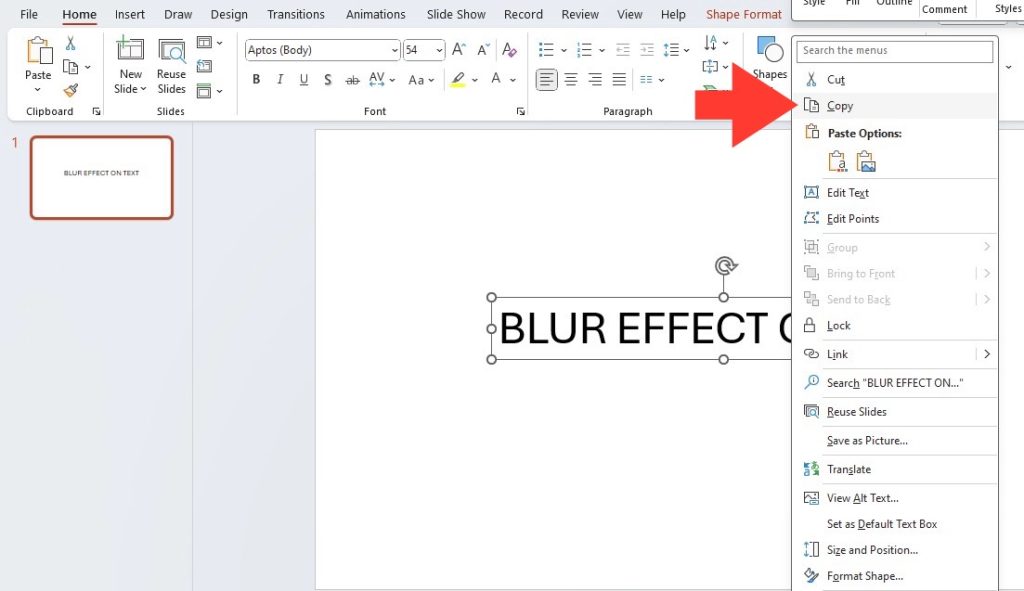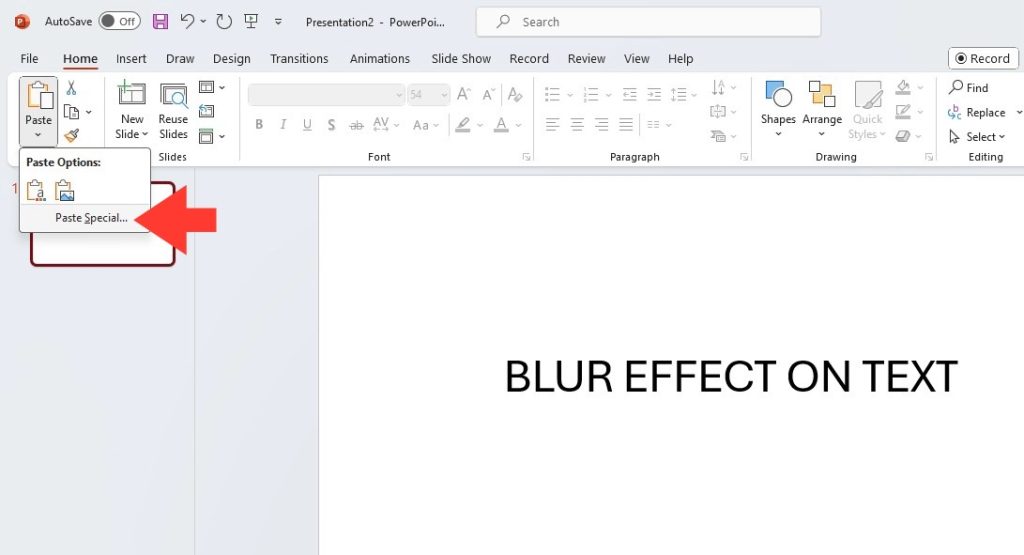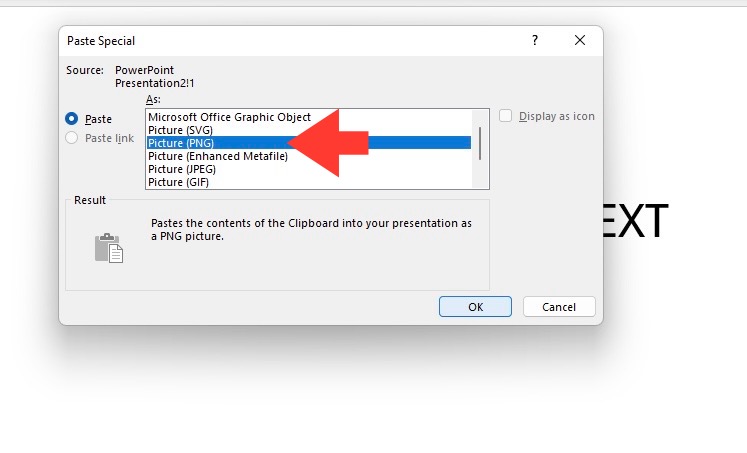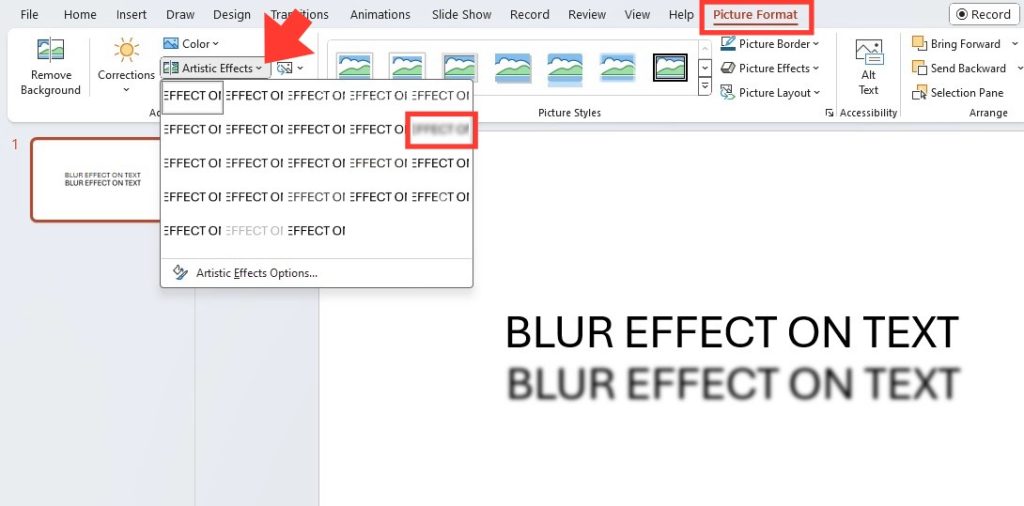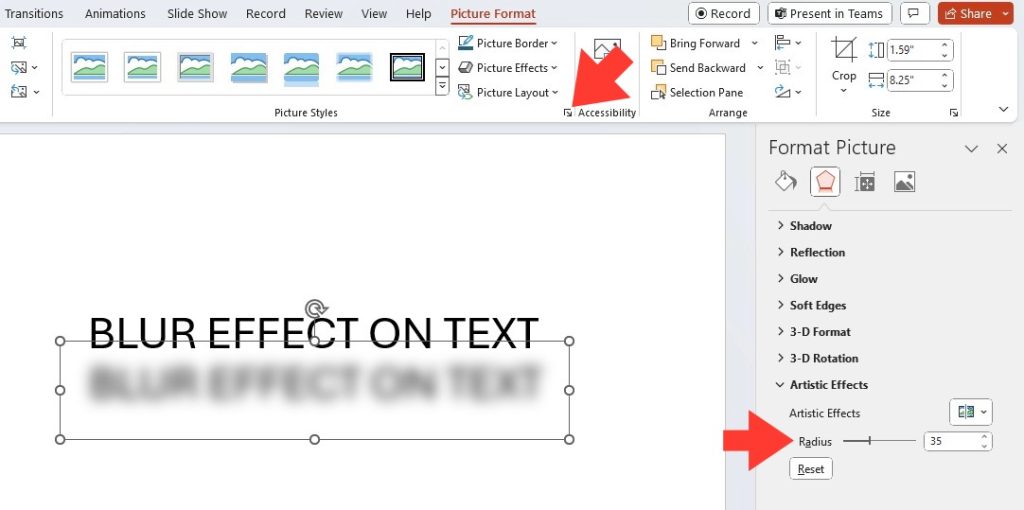

Why Blurring is a Game-Changer for Slide Design
Blurring isn’t just an effect for graphic designers or photographers; it’s a pivotal trick for anyone creating PowerPoint presentations. By artfully using blur, you transform how the audience processes information, focusing their gaze exactly where you want it.
Learn our Top 7 Excel Interview Questions to Land Your Dream Job!
Key Takeaways
- To blur images in PowerPoint, first select the image, then go to the Format Picture pane, and choose Artistic Effects to find the blur option.
- Adjust the blur strength using the provided slider or input box until you achieve the desired level of blurriness for your image.
- Blurring an image in PowerPoint can help focus attention on specific presentation elements or conceal sensitive information within an image.
Scenarios Where Blurring Effects Make an Impact
Blurring effects in PowerPoint aren’t merely for aesthetic value; they play a strategic role in enhancing your presentation. Imagine wanting to highlight a crucial statistic while gently obscuring the less relevant data. Or consider when you need to present a new product design but maintain confidentiality by blurring out specific details. Blurring can also help in creating a cleaner look by softening the background, allowing your main subject to stand out.
Table of Contents
Mastering Basic Blur Tools in PowerPoint
Using the Built-In Blur Options
Diving into PowerPoint’s built-in tools, you’ll find that blurring an image is a breeze. They’ve integrated these features intuitively. You can start by selecting your image, hitting the “Picture Format” tab, and then choosing “Artistic Effects.” There, the “Blur” option awaits to transform your slide with a simple click.
Adjusting Blur Intensity for Desired Effectiveness
Once you’ve kicked off the blurring process with the built-in tools, tailoring the intensity sets your slide apart. By selecting the image and clicking “Artistic Effects Options” under “Artistic Effects” in the “Format” tab, you reach the magic wand—the “Radius” tab. Here, you can play with the blur’s radius and intensity, giving you the power to fine-tune the effect until it’s just right for your slide’s purpose.
Step-by-Step Guide to Blur Selected Areas
How to Precisely Blur Part of an Image
When a presentation demands precision, blurring just part of an image in PowerPoint is crucial. Follow these helpful steps:
STEP 1: Open your slide, select the image, and draw a shape over the area to blur.
STEP 2: Right-click the shape, pick “Format Shape,” then choose “Fill” and opt for a solid fill, adjusting the color if needed.
STEP 3: Slide the transparency level until you’ve achieved the desired blur effect.
STEP 4: Finally, right-click the shape and the image to group them, ensuring they move as one.
This blend of shape and transparency gives you control over the precise areas of emphasis.
Alternatively, you can use this method:
STEP 1: Duplicate the image by Right-clicking > Copy (CTRL+C)>Right-click again > Paste (CTRL+V).
STEP 2: Move the pasted image in the same exact spot as the image underneath.
STEP 3: Go to the Picture Format tab > Artistic Effects > Blur to apply the effect on the image on top.
STEP 4: Click on Crop and adjust it to your preference.
STEP 5: Adjust the strength of the effect accordingly.
Blurring Text for Confidentiality or Emphasis
To safeguard sensitive information or to make a striking point, blurring text in PowerPoint can be an invaluable strategy. Highlight the text you wish to blur and follow these simplified steps:
STEP 1: Right-click on the highlighted text box and click Copy. Or CTRL+C.
STEP 2: In the Home tab, click on Paste>Paste Special.
STEP 3: Select “Picture (PNG)”, then OK.
STEP 4: With the new image selected, go to the Picture Format tab>Artistic Effects>Blur.
STEP 2: Adjust the blur level by going to Format Picture, then adjust the Radius.
This technique can turn a potential distraction into an area that piques curiosity, guiding your audience’s focus to the relevant content while keeping private details just that—private.
Troubleshooting Common Blur Challenges
Resolving Issues with Blurring Specific Image Formats
Occasionally, you might run into hiccups when attempting to blur certain image formats in PowerPoint. Fear not! Here’s how to resolve common challenges:
- For stubborn formats that don’t seem to blur properly, try converting them to a more compatible format like JPG or PNG.
- Ensure that the image is not locked or protected, which can prevent editing.
- If all else fails, use an external photo editor to apply the blur and reinsert the image back into PowerPoint.
Keep these tips in your back pocket, and you’ll be smoothing over format issues with ease.
Tips for Perfectly Blurred Backgrounds Without Artifacts
Creating a perfectly blurred background in PowerPoint, without any unwanted artifacts, is all about finesse:
- Start with high-resolution images, as low-quality images can result in grainy or pixelated backgrounds once blurred.
- Use the ‘Format Picture’ option to refine the blur and check ‘Preserve fidelity when sharing this presentation’ to maintain quality.
- Incrementally adjust the blur level; moving the slider slowly helps prevent artifacts from appearing.
Perfectly blurred backgrounds should enhance your content, not detract from it, so take the time to tweak until you get it just right.
Harnessing Blur Effects for Dynamic Presentations
Case Studies: Successful Use of Blur in Professional Slides
Let’s delve into real-world triumphs with blur effects! Below, find inspiring case studies that showcase how professionals have leveraged blur in their presentations to achieve remarkable outcomes:
- Marketing Dashboards: A marketing team used blur to focus attention on specific KPIs during stakeholder updates, resulting in more targeted discussions and quicker decision-making.
- Product Reveals: At a tech launch, a company teased its new product by using a gradual blur reveal, building suspense and captivating the audience until the grand reveal.
- Educational Webinars: Speakers have effectively blotted out sensitive data while discussing case studies, ensuring privacy without sacrificing the depth of analysis.
These stories not only highlight blur’s versatility but also its power to command attention and safeguard information.
FAQs About Blurring Techniques in PowerPoint
Are There Limitations to the Built-In Blur Effects?
Yes, there are limitations to the built-in blur effects in PowerPoint. While you can adjust blur intensity and radius, the maximum blur level is capped at 100%. For extreme blurring or more complex effects, like tilt-shift or lens blur, you might need to use third-party image editing software, such as Photoshop.
What image formats can be blurred in powerpoint?
PowerPoint can blur most common image formats, including JPG, PNG, GIF, and TIFF. However, for the best results and compatibility, it’s often recommended to use high-resolution JPG or PNG images to avoid any quality loss when applying the blur effect.
Can You Apply Blur to Videos in PowerPoint?
No, PowerPoint doesn’t directly support applying blur effects to videos. You’ll need to edit the video using external video editing software to add a blur effect before inserting it into your PowerPoint presentation.


John Michaloudis is a former accountant and finance analyst at General Electric, a Microsoft MVP since 2020, an Amazon #1 bestselling author of 4 Microsoft Excel books and teacher of Microsoft Excel & Office over at his flagship MyExcelOnline Academy Online Course.





